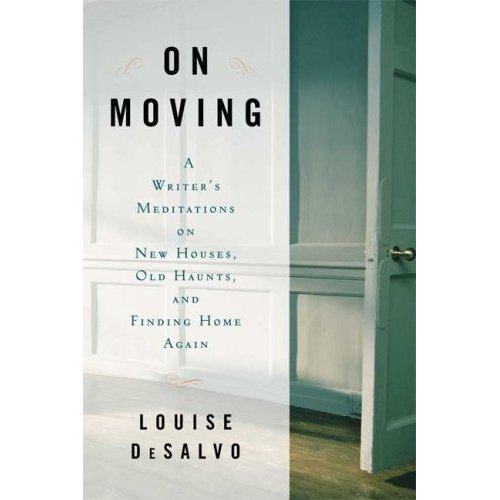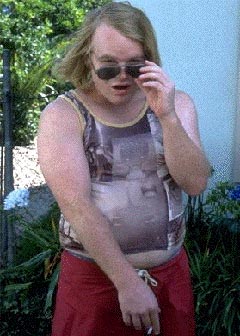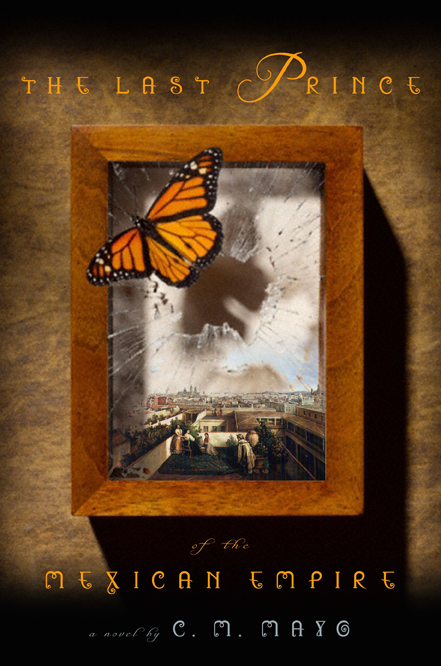 Recently I was invited to do a guest blog for Madam Mayo, using a simple format: I had to provide five links that are in some way relevant to my new novel. (Other writers have used this format in all kinds of ways – 5 Secrets of Mexico City, Top 5 Aviation Museums, 5 Magnetic Spaces – as you can see.) Rooting around for ideas, I opened a file I kept while working on Bird in Hand. As I leafed through this file I could trace the genesis of my ideas. So I chose some passages that shaped my novel-in-progress – and why. That post is here.
Recently I was invited to do a guest blog for Madam Mayo, using a simple format: I had to provide five links that are in some way relevant to my new novel. (Other writers have used this format in all kinds of ways – 5 Secrets of Mexico City, Top 5 Aviation Museums, 5 Magnetic Spaces – as you can see.) Rooting around for ideas, I opened a file I kept while working on Bird in Hand. As I leafed through this file I could trace the genesis of my ideas. So I chose some passages that shaped my novel-in-progress – and why. That post is here.
Guest Blog: Louise DeSalvo on Why Having Kids is No Excuse
A celebrated memoirist calls the bluff of a parent who laments that he doesn’t have time to write:
 He was across the street raking leaves, and I went over to say hello one a cool autumn day, to take a break from my work, writing about my father’s life during World War II.
He was across the street raking leaves, and I went over to say hello one a cool autumn day, to take a break from my work, writing about my father’s life during World War II.
“How did you write when you had kids?” he asked me. “I have this book I want to write, and I can’t get anywhere. All the housework and time with the kids leaves me no time for writing.”
Bob is a work-at-home dad. He’s told me about the book he’s burning to write about raising kids with his partner, filled with unconventional wisdom, hard-earned.
Your kids are at school now. What are you doing raking leaves?
Maybe I should have sweet-talked him about how, yes, it’s tough to get to your work, blah, blah, blah. But I figured he wanted to know how I did it, so I told him how I kept at my writing when my kids were growing up, and I gave him my “rules” that made it possible.
Rule Number 1: As soon as the kids are off to school, get to your desk. When they’re babies, as soon as they’re in their cribs, or in their rooms, for a quiet time or a nap, get to your desk. Don’t do housework. Don’t make telephone calls. And for goodness sake, don’t do e-mail, go on Facebook, or look at Oprah. Don’t waste the precious little time you have. You can shop, run a household, cook, when the kids are around, and they can help you. Bob’s kids love raking leaves – they’d raked mine for money. But there he was, raking, pining for his work, which meant he was choosing to rake, not to write.
Rule Number 2: You don’t need “blocks of time.” Lots of biographies describe writers going to their studies for the entire day. Nice, if you can do it. Most of us can’t, or wouldn’t want to. Many writers who aren’t writing tell me they need “blocks of time.” When I ask if they write in snippets of time, they say no. When my kids were young, I could get in three hours of work a day, no matter what. Everyone can get in three hours of work a day. That’s all Virginia Woolf worked; that’s all the time she took to write. Sometimes, for me, it was an hour here, fifteen minutes there. When they were babies, I used their nap time and two hours after they went to sleep to write. I took my work to wading pools, doctor’s offices, the park. I didn’t push my kids on a swing. They were there to play, not me.
Rule Number 3: You’re not a taxi cab driver. The suburbs are wonderful, sure, but also hellish places for parents, especially if you feel bound to ferry kids from one activity to another. I tried it. I died inside. Each of my kids got one ride a week, no more. Sure, they got angry. But they figured out how to get places. Like walking. Or riding their bikes. And I didn’t go to every one of their games. That was their thing, not mine. There’s nothing sadder than seeing talented, dying-to-express-themselves parents sitting around doing nothing while their not-so-talented kids dance, play soccer, or twirl around on gym equipment. If you have to go, bring your work and do your work. Ignore your child. Wave occasionally.
Rule Number 4: You have a right to do your work even though you’re not getting paid for it (yet). Writing, as Audre Lorde said, is not a luxury, surely not for the person yearning for self-expression. The way I look at it, you can either write, or you can get angry, feel ripped off, or worthless. Better that you write. And when you get paid, even a pittance, invest the money into your growing business. Think of yourself as a start-up company. Keep ten percent of the profits for yourself. Spend the rest to replace your labor to give you more time. To write.
Rule Number 5: You’re the grown-up. Your life is yours, not your child’s. This is the way Europeans run their households. This is the way I ran mine. My needs had to be met. First. Selfish? Yes. “She sacrificed her life for her children” is not something I want written on my tombstone. A parent’s life is a terrible thing to waste.
Rule Number 6: Touch your work every day. Live by Anne Lamott’s father’s rule: Work every day, and finish things.
Rule Number 5: Call it work, not writing. No one I knows cares if you’re writing. That’s why you have to call it work. Because that’s what it is. Your work. Your life’s work.
Louise DeSalvo is the Jenny Hunter Distinguished Scholar for Literature and Creative Writing at Hunter College. Her most recent book is On Moving. Her other titles include the memoir Vertigo, which received the Gay Talese award; Crazy in the Kitchen: Food, Feuds, and Forgiveness in an Italian American Family, which was named a Booksense Book of the Year; and Writing as a Way of Healing: How Telling Our Stories Transforms Our Lives. DeSalvo is also a renowned Virginia Woolf scholar.
Only Commit
 To get a book underway, you have to fully commit to it.
To get a book underway, you have to fully commit to it.
This is less obvious than it may seem. One of the hardest parts of starting a book is committing to an idea. Because … what if the story isn’t big enough? What if it isn’t compelling enough? What if there isn’t enough of an arc; what if it’s the wrong perspective; what if there’s a better way to tell the story? (Or should you be telling another story altogether?)
Committing to a story can feel almost as momentous as getting engaged. The questions you ask yourself aren’t so different. Willl I really be able to live with this person day after day, year after year? I really like X about him, but I can’t stand Y. Things I like about him in small doses might become intolerable over time. And how will he age?
In an interview in The New York Times Magazine, Philip Seymour Hoffman addressed this issue of committing to an idea. He was talking about how he starts from scratch every time he becomes a new character, but it struck me that the creative process he describes is similar to a writer’s. “Creating anything is hard. It’s a cliche thing to say, but every time you start a job, you just don’t know anything. I mean, I can break something down, but ultimately I don’t know anything when I start work on a new movie. You start stabbing out, and you make a mistake, and it’s not right, and then you try again and again. The key is you have to commit. And that’s hard because you have to find what it is you are committing to.”
Quick Link: National Reading Group Month Panel
 From left to right: Rosalind Reisner (co-moderator), C.M. Mayo, Julie Metz, Eva Hoffman, Christina Baker Kline, Roxana Robinson, and Miriam Tuliao (co-moderator).
From left to right: Rosalind Reisner (co-moderator), C.M. Mayo, Julie Metz, Eva Hoffman, Christina Baker Kline, Roxana Robinson, and Miriam Tuliao (co-moderator).
This month I was privileged to be on the Women’s National Book Association panel in celebration of National Reading Group Month. On her lively blog, “A Reader’s Place,” Rosalind Reisner gives the full report. She talks about my new novel, Bird in Hand, as well as recent works by Roxana Robinson (Cost), Eva Hoffman (Apassionata), Julie Metz (Perfection), and C.M. Mayo (The Last Prince of the Mexican Empire). It was an honor to be in a room full of people who are passionate about books; as much as I enjoyed talking about my own novel, I was even happier to listen to the other writers talk about their work.
And here’s what Marian Schembari has to say about this extraordinary evening over at Marian Librarian.
Break the Block in Five Minutes
 Award-winning writer, translator, and editor C. M. Mayo explains the power of the five-minute exercise:
Award-winning writer, translator, and editor C. M. Mayo explains the power of the five-minute exercise:
“I don’t have time to write.” Everyone and their uncle who has that bodacious idea for a screenplay, it seems, leans on this one. Do you?
I’m a writer, but that doesn’t mean I always have the time I’d like for writing – the big luxurious swaths of peaceful solitude that, as arts colony-goers know, enable a writer to swan through six months of work in a mere week. But on any given day I do have some scrap of time I could dedicate to writing. In the crush of things, it may be only an hour, maybe half an hour. Maybe less. No matter what your life looks like, even if you have two jobs and eight screaming kids, you, too, have time to write – though we’re talking five minutes and I know, you may have to lock yourself in the bathroom to grab that much. But grabbing such scraps of time can make the difference between being a writer who writes and a writer who isn’t.
So here’s a trick: take out an egg-timer (or use the countdown feature on your cell phone) and set it to five minutes. You would be amazed how much you can write in a mere five minutes, and at how much momentum you gain, so much in fact that most people – I say this based on my experiences teaching workshops – find it painful to stop.
What to write? Back in 2006, as an exercise to help my students and also myself, as I was in the midst of long slog (The Last Prince of the Mexican Empire, my nearly 500-page historical novel), I posted one five-minute writing exercise every day for 365 days. These cover dialogue, plot, beginnings, characterization, body language, weather, imagery, synesthesia, and more. You’ll find “Giant Golden Buddha & 364 More 5 Minute Exercises” arranged by month and with a thematic index here. Most of the exercises are mine, but a number are by other writers and poets who contributed their favorites. Help yourself – and have fun!
And one last tip: when you do these exercises, or any other writing, always keep your pen resting lightly on the paper, or your fingers resting lightly on the keyboard. If you raise your hand, say, to scratch your chin as you contemplate what to write, your body has alas, powerfully, told your writing mind that it does not want to cooperate. So cooperate. With your pen resting lightly on the paper, or your fingers lightly on the keyboard, you’ll see, something will come into your mind and you will write. And that’s it – you’ve broken the block. Now may your writing flow.
C.M. Mayo is the author of The Last Prince of the Mexican Empire, which is based on a strange and powerful true story. Her other works include Miraculous Air: Journey of a Thousand Miles through Baja California, The Other Mexico, and Sky over El Nido, which won the Flannery O’Connor Award. She is the editor of Mexico: A Traveler’s Literary Companion, a portrait of Mexico in works by 24 Mexican contemporary writers. She teaches in the San Miguel Workshops and the Writers Center, and blogs at Madam Mayo.
- « Previous Page
- 1
- …
- 15
- 16
- 17
- 18
- 19
- …
- 34
- Next Page »
